QuestionWhere I live at a villa in Spain we have a lot of feral cats come to us for food and water. what started of as one or two kittens turned into them having their kittens near the house so now we have over over 10 of them running around. they are no bother though, but recently we have noticed that one of the younger kittens, aprox 2 months has started behaving oddly. he seems to be disorientated, stumbles when he tries to walk and can never walk in a straight line. when he is sat still his head is swivelling around like its lolling about at the neck and his eyes dont seem fixed on anything. I took him into the house and his eating and feeding habits are that of a normal kitten his size but when checking his reflex actions I noticed he wasn't bothered by me clapping my hands near his head. he is most happy when with another kitten and spends most of his time sleeping. he has also taken to sleeping inside a watering can to keep cool I guess, but is very hostile to any other cats who come near him when he is in there. I'm very concerned bout this disorientation as I don't want him to suffer if its anything really bad but obviously cant afford to start taking them all to the vets over nothing!! what do you think it could be?
AnswerHi Kayleigh,
The kitten really should see a vet right away for a proper diagnosis and treatment. There are a couple of diseases that can cause neurological symptoms like the ones you're seeing. Toxoplasmosis, a protozoan infection, can be a cause of neurological problems in cats and kittens. It is contagious through oral contact with feces, so the other cats may be at risk. Fortunately, the disease can be cured with an antibiotic called clindamycin.
Feline Infectious Peritonitis (FIP) may be a concern, as well as the Feline Leukemia virus. These are caused by viruses which are also contagious. There is a simple test for the leukemia virus, but none is available for FIP, yet. Diagnosis is made mostly by symptoms and some supportive blood tests.
Another condition that comes to mind, called Cerebellar Hypoplasia (CH), is present at birth but usually isn't noticed until the kitten is around 3 weeks old or is walking. Do you suppose the kitten might have been exhibiting his symptoms all along? CH causes a kitten to be very wobbly, due to the underdevelopment of a part of the brain, called the cerebellum, which controls motor skills. The condition is due to the mother's being infected with feline distemper when she is pregnant. Sometimes a whole litter is affected, or sometimes only some of the kittens are. The condition is painless but causes the affected cat to be very uncoordinated in his movements. The cat will stumble and seem to lose balance, make exaggerated strides with his legs and generally be unable to finely control his movements. Most cats appear normal when still, but some have a head bob. The kittens grow up perfectly healthy and happy as long as they can hold themselves still enough to eat from a food bowl, but they need to live indoors, since they can easily suffer falls from trees, and they are unable to run away from aggressive animals or other dangers. This condition doesn't worsen as they age, and it doesn't cause them any other health problems in most cases (a few cats have suffered from seizures, but this is uncommon). Most vets are able to make this diagnosis quickly and easily because the cats have such characteristic movements. See this video of a cat with CH: http://www.youtube.com/watch?v=dJQG6V1MOVY
Good luck with the little one!
Jessica

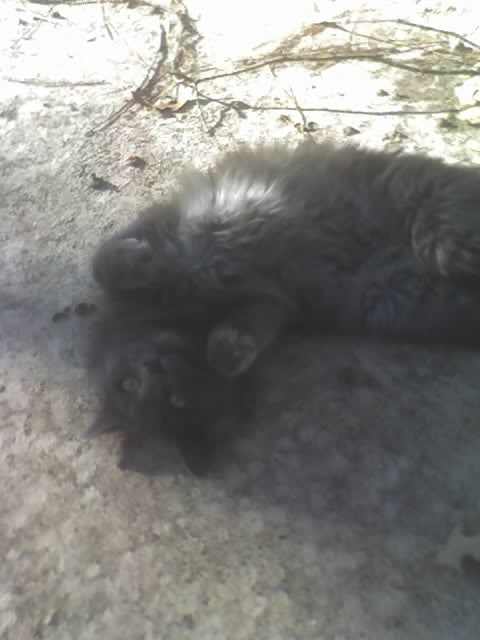 shots/food
QuestionQUESTION: Teresa,
Silver is a wild kitten we he
shots/food
QuestionQUESTION: Teresa,
Silver is a wild kitten we he
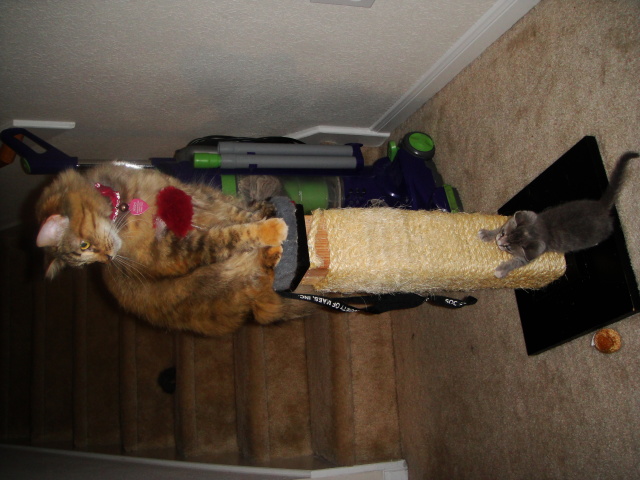 Kitten weaning questions
QuestionI just recently rescued a kitten of about 4 wee
Kitten weaning questions
QuestionI just recently rescued a kitten of about 4 wee
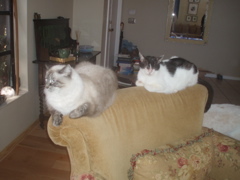 My 12 year old indoor/outdoor male escaped 2 weeks after a recent move
QuestionEefa and our lost blac
QUESTION: We trie
My 12 year old indoor/outdoor male escaped 2 weeks after a recent move
QuestionEefa and our lost blac
QUESTION: We trie
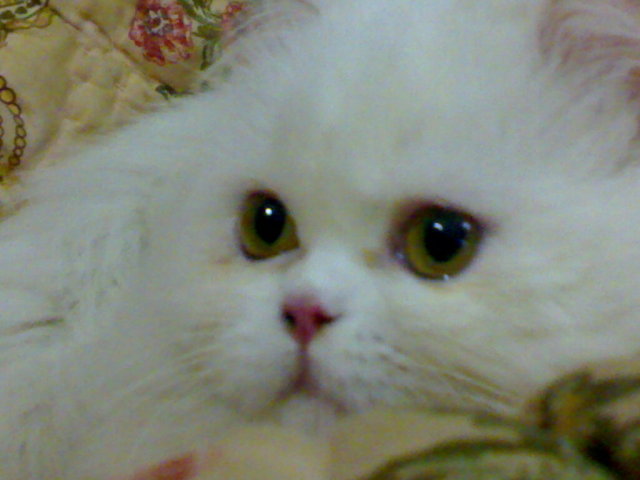 What is the breed of my cats
Question
1st
Hello Ali
Thanx for giving us time to get
What is the breed of my cats
Question
1st
Hello Ali
Thanx for giving us time to get
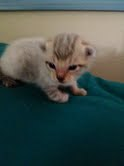 Is my kitten counted as a male calico?
QuestionQUESTION: I have a new litter of kittens and th
Is my kitten counted as a male calico?
QuestionQUESTION: I have a new litter of kittens and th